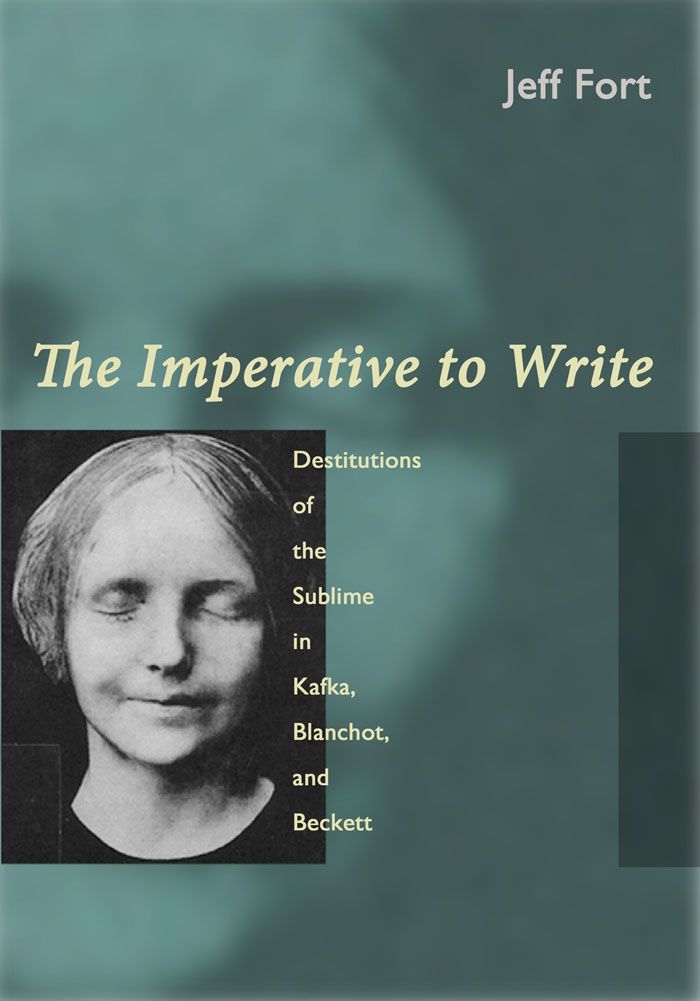The Imperative to Write
Destitutions of the Sublime in Kafka, Blanchot, and Beckett

This book can be opened with

Is writing haunted by a categorical imperative? Does the Kantian sublime continue to shape the writer’s vocation, even for twentieth-century authors? What precise shape, form, or figure does this residue of sublimity take in the fictions that follow from it—and that leave it in ruins?
This book explores these questions through readings of three authors who bear witness to an ambiguous exigency: writing as a demanding and exclusive task, at odds with life, but also a mere compulsion, a drive without end or reason, even a kind of torture. If Kafka, Blanchot, and Beckett mimic a sublime vocation in their extreme devotion to writing, they do so in full awareness that the trajectory it dictates leads not to metaphysical redemption but rather downward, into the uncanny element of fiction. As this book argues, the sublime has always been a deeply melancholy affair, even in its classical Kantian form, but it is in the attenuated speech of narrative voices progressively stripped of their resources and rewards that the true nature of this melancholy is revealed.
“Jeff Fort writes with energy and verve, ambitiously tackles some formidably difficult works, and treats in this study an extensive and important corpus of some key figures in literary modernism.”
The Imperative to Write examines three formidably difficult and fascinating writers of the last century: Kafka, Blanchot, and Beckett. Jeff Fort analyzes the exigency to write in each of the three, and produces a powerful study of these major authors. A 'tour de force' of close reading.
“In this ambitious and wide-ranging book, Jeff Fort addresses some of the most enduring and intractable issues affecting modern literature.”

